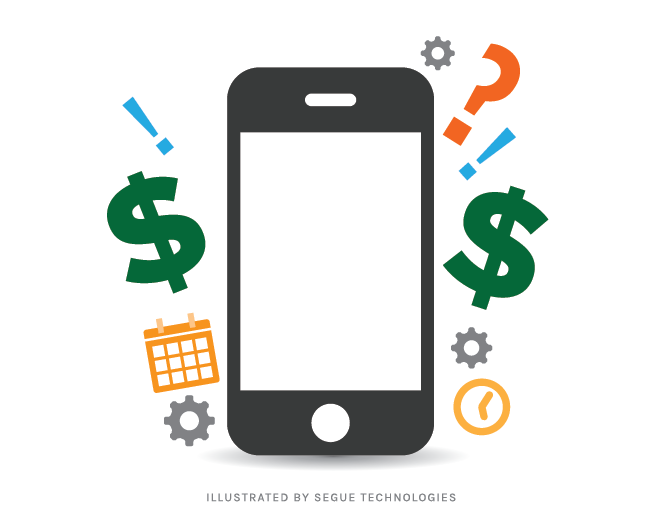Have you noticed how very few companies in the software industry address the question of mobile application development cost on their websites? If you have searched on the internet or spoken with a software development company directly, the answer you probably have encountered most frequently is; “well, that depends” with little to no additional explanation. While this may seem like a cop out, it’s actually the right answer- it does depend. Don’t stop reading; I promise I’ll explain further. Now, I might be breaking some unknown pact between my fellow software brethren by revealing this super-secret information, but the majority of the mobile application development projects that we have worked on have fallen within the range of $100,000-$250,000. This is primarily because we focus on enterprise mobile applications, but many of our partner companies in the industry develop less complex apps for much less.

Now let’s get into what exactly “it depends” on. The three main factors that affect the cost of a mobile app build-out are: Functionality, the targeted users/devices and timeline.
- Functionality (what you want the app to do) is the most important factor in determining cost. There is a big difference between an app that does something simple (such as creating a to-do list) compared to a fully-featured interactive app like the new Star Wars app. Historically, apps that perform one or two functions really well (such as Uber or Words with Friends) have been more successful than apps that have been crammed with extra and sometimes needless functionality. Although app developers are getting more efficient with usability when delivering apps with more extensive functionality, I still think that developing an app to do one or two specific tasks really well is the best approach and ultimately will reduce the overall cost of development. The main take-away here is the more you want the app to do, the more it is going to cost you.
- Targeted users/devices (who you want to use your app) can drastically affect cost when developing a mobile app. There are a few key technology-based questions you should be prepared to consider when planning your mobile project. The biggest and most commonly debated question is whether you should build a Native App or a Mobile Web App. For reference, a Native App is one that is developed specifically for a certain mobile operating system (such as iOS or Android) and installed directly on the device whereas a Mobile Web App is an app that is not operating system-specific and runs on a device’s web browser. The focus of this article isn’t to discuss the pros and cons of these two alternatives, rather to explain how choosing one option over the other can affect the total cost of the project. Ultimately, cost will be affected by the selection of the target audience since this selection drives the technical solution. For example, let’s say you want to develop a clinical mobile app to assist Doctors with conducting their rounds and you know that they will all be using hospital-issued iPhones. In this scenario, developing a Native app for iOS (Apple) devices seems like a pretty logical solution, right? However, take that same scenario and complicate it by requiring support for Android, Windows Mobile, and Blackberry devices. If you were to develop a Native app for each of the required platforms it could end up costing you 4 times what it would cost to develop one mobile web app! The reason for this is that code development for each mobile operating system is essentially an independent effort and usually requires different programming languages and environments. So, as you can see one size does not always fit all with respect to mobile and the selection of your target audience weighs heavy on cost.
- Timeline (when do you want it!) is another key factor in cost determination with a mobile app project. Having a reasonable timeline (with customer involvement throughout the process) is the best way to keep the project within budget and avoid cost overruns. Having an unrealistic expectation of a project delivery can cause unneeded rush charges and can also affect cost. For example, let’s say your company wants to develop an app to control the Mars Rover and you want it next week. Do you think a rush delivery affects cost? You bet it does. Although some development tasks simply can’t be rushed and take however long they are going to take, requesting a quick turnaround time can definitely have an impact on cost.
So there you have it folks, a break-down of what goes into the pricing and cost factors of developing a mobile app. If you’re looking to go from “it depends” to a hard number, don’t hesitate to contact us.